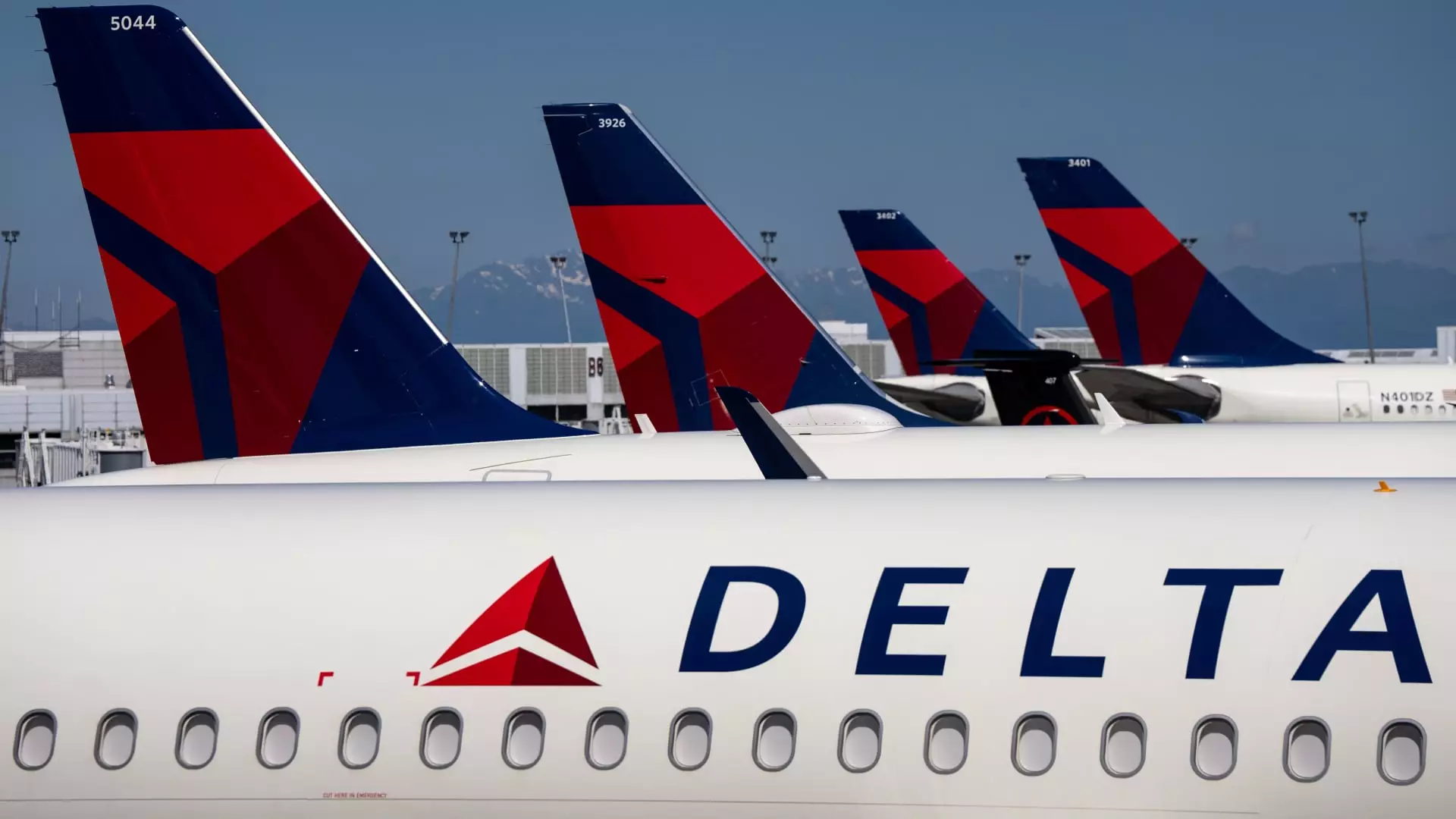The airline industry, emblematic of both global mobility and economic vitality, is currently facing an upheaval that raises significant red flags for stakeholders. Delta Air Lines, once the strongest contender in the U.S. airline sector, has announced that it will not expand its flight capacity in the latter half of the year due to disappointing bookings. This startling decision highlights how deeply intertwined the airline’s fortunes are with national economic policies and consumer sentiment, particularly in the wake of President Donald Trump’s unpredictable trade tactics. The disarray in economic confidence and the resultant cautious consumer behavior cannot be underestimated.
The Impact of Economic Policies
CEO Ed Bastian described the current situation as indicative of “the wrong approach.” His disappointment is palpable as he acknowledges a stark decline in bookings, which have plummeted largely due to complicated trade relationships and a shifting economic landscape. What former administrations considered necessary for economic growth is now viewed through a lens of skepticism, particularly by corporate leaders who rely heavily on patterns of consumer spending. In this climate, a once-positive trajectory for Delta has spiraled into uncertainty, evidenced by a relatively grim forecast for the coming months.
Corporate Connections and Their Discontents
Bastian’s insights shed light on the broader implications of weak consumer and corporate confidence. The decline in main cabin bookings reflects not just a drop in leisure travel but also a reevaluation of corporate travel. Companies are scaling back business trips, a move that can be seen as both prudent and a sign of a more defensive corporate strategy. In the high-stakes world of business, where executives prioritize budget allocations, this shift can cripple the airline’s performance and passenger revenues in the long term. While international and premium travel segments remain resilient, the erosion of domestic, mainstream travel points to a troubling outlook.
Analysts on the Sidelines: Revisions and Apprehensions
Wall Street has reacted accordingly, slashing earnings estimates and price targets for airlines to account for a concerning trend in travel demand decline. Delta has already adjusted its financial expectations, putting the brakes on planned capacity growth that was supposed to be a hallmark of its strategic resurgence. This roll-back evokes a sense of alarm; it represents not just a temporary setback but a tactical retreat in the face of economic uncertainty. Here, Bastian emphasizes the airline’s need to protect its margins and cash flow—a strategy indicative of an industry at a crossroads.
Profitability Amidst Adversity
Despite current challenges, Delta’s financial results showcase resilience on different fronts. In their recent report, the airline posted a net income of $240 million compared to merely $37 million a year prior. Furthermore, adjusted earnings and revenue aligned with Wall Street estimates, demonstrating that Delta still possesses a degree of operational strength. However, in this slow-growth environment, maintaining profitability may become increasingly challenging without a shift in the broader economic landscape.
Future Predictions: A Balancing Act
Looking to the future, Delta’s potential for recovery hangs in a delicate balance. The airline’s inability to provide an updated financial guidance for 2025 reveals hesitancy rooted in an unpredictable market. Economic recovery and airline growth appear perilously linked to external factors—namely trade policies and global economic conditions. Thus, Delta’s fate is not solely in its own hands, but rather contingent on the larger socio-economic framework that governs airline demand and corporate strategies.
In summation, Delta Air Lines stands at a critical juncture, hampered by shifting economic tides and a consumer landscape that continues to evolve with uncertainty. The hope for renewal lies in the airline’s resilience, tactical flexibility, and the broader economic context that surrounds it. While the present signals a recessive phase for the airline, optimism remains tethered to strategic adaptations in an ever-changing environment.

